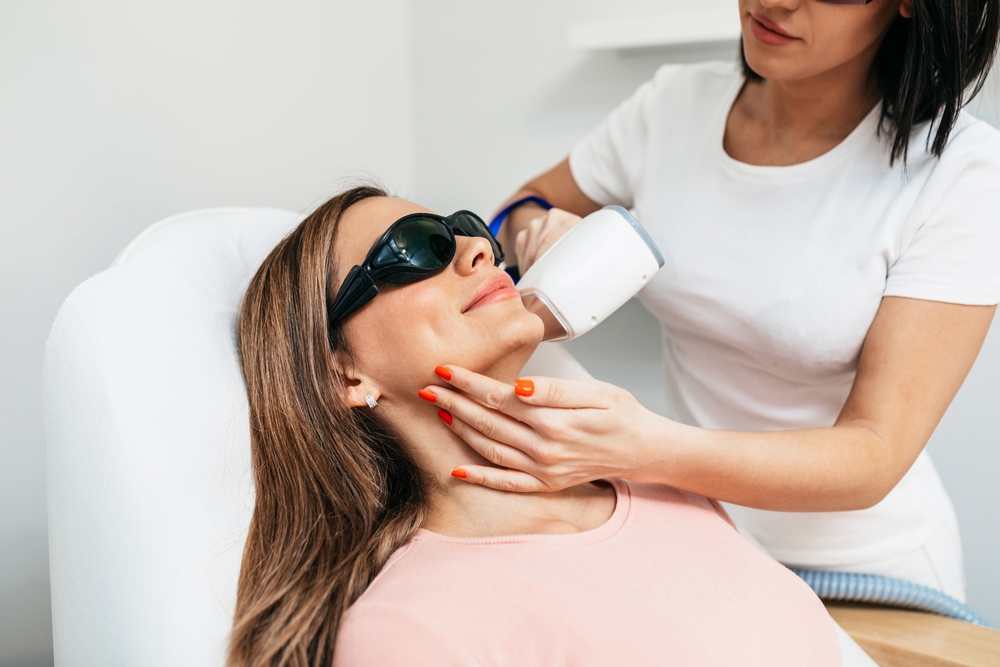For individuals leading active lifestyles, managing vision problems often poses challenges. Laser vision correction offers a potential solution, providing clearer vision without the need for corrective eyewear. This advanced technology works to address common vision impairments. This may significantly improve both convenience and quality of life for active individuals.
What Conditions Can Laser Vision Correction Treat?
Laser vision correction is designed to address several types of refractive errors, which hinder how the eye focuses light on the retina. These conditions are typically assessed during a comprehensive eye examination. During these, an eye specialist can determine if laser correction aligns with a patient’s specific vision requirements. The most common conditions addressed by these procedures include:
- Nearsightedness (Myopia): Individuals with myopia experience difficulty seeing distant objects clearly.
- Farsightedness (Hyperopia): Those with hyperopia struggle to focus on nearby objects, while distant objects appear clearer.
- Astigmatism: Astigmatism can cause blurry or distorted vision due to an irregularly shaped cornea.
- Presbyopia: Often age-related, presbyopia affects the ability to focus on close objects, such as while reading small text.
How Do They Treat These Conditions?
While laser treatments are not a one-size-fits-all solution, their targeted approach relies on advanced technologies to reshape the cornea or address cataracts. The procedures are tailored to the unique condition and vision needs of each patient. Below are three of the most common laser-based methods.
LASIK
LASIK focuses on reshaping the cornea to enhance how light is focused onto the retina. LASIK is known for its relatively quick recovery time. Most individuals notice improvements in their vision within a few days following the procedure, making this treatment a popular choice among those leading active lifestyles.
PRK
Photorefractive Keratectomy (PRK) is another type of laser correction that works by removing the outermost layer of the cornea (the epithelium) before reshaping the underlying tissue. Though the recovery period for PRK may take slightly longer and involve more initial discomfort, the long-term visual outcomes are typically comparable to LASIK.
Laser Cataract Surgery
For those dealing with cataracts, laser cataract surgery offers a refined approach to cataract removal. Using advanced laser technology, surgeons make precise incisions to remove the cloudy lens of the eye, replacing it with a clear artificial intraocular lens (IOL). While traditional cataract surgery remains common, the laser-assisted method delivers enhanced precision.
What Are the Benefits?
For individuals leading active lifestyles, laser vision correction may bring a variety of advantages. These can range from practicality to improving performance. Here are some benefits often associated with these procedures:
- Freedom From Corrective Eyewear: Eliminating the need for glasses or contact lenses allows for unobstructed participation in sports and activities.
- Convenience: Following laser correction, there’s no need to pack spare lenses or glasses for traveling and no frustration from glasses fogging up in humid or cold conditions.
- Improved Performance in Active Pursuits: Athletes and outdoor enthusiasts may find it easier to engage in their passions without the limitations imposed by corrective lenses.
- Reduced Risk of Eyewear Complications: Contact lens-related discomfort, dry eye issues, or the risk of infections are mitigated when reliance on lenses is reduced.
Conferring With an Eye Specialist
Laser vision correction presents an opportunity to simplify life and improve convenience for those with active lifestyles. Before proceeding with any form of laser treatment, consulting with an eye specialist is integral. A thorough evaluation can help determine whether a specific procedure aligns with your vision goals and overall eye health. Eye care professionals can provide personalized recommendations based on your unique needs.

